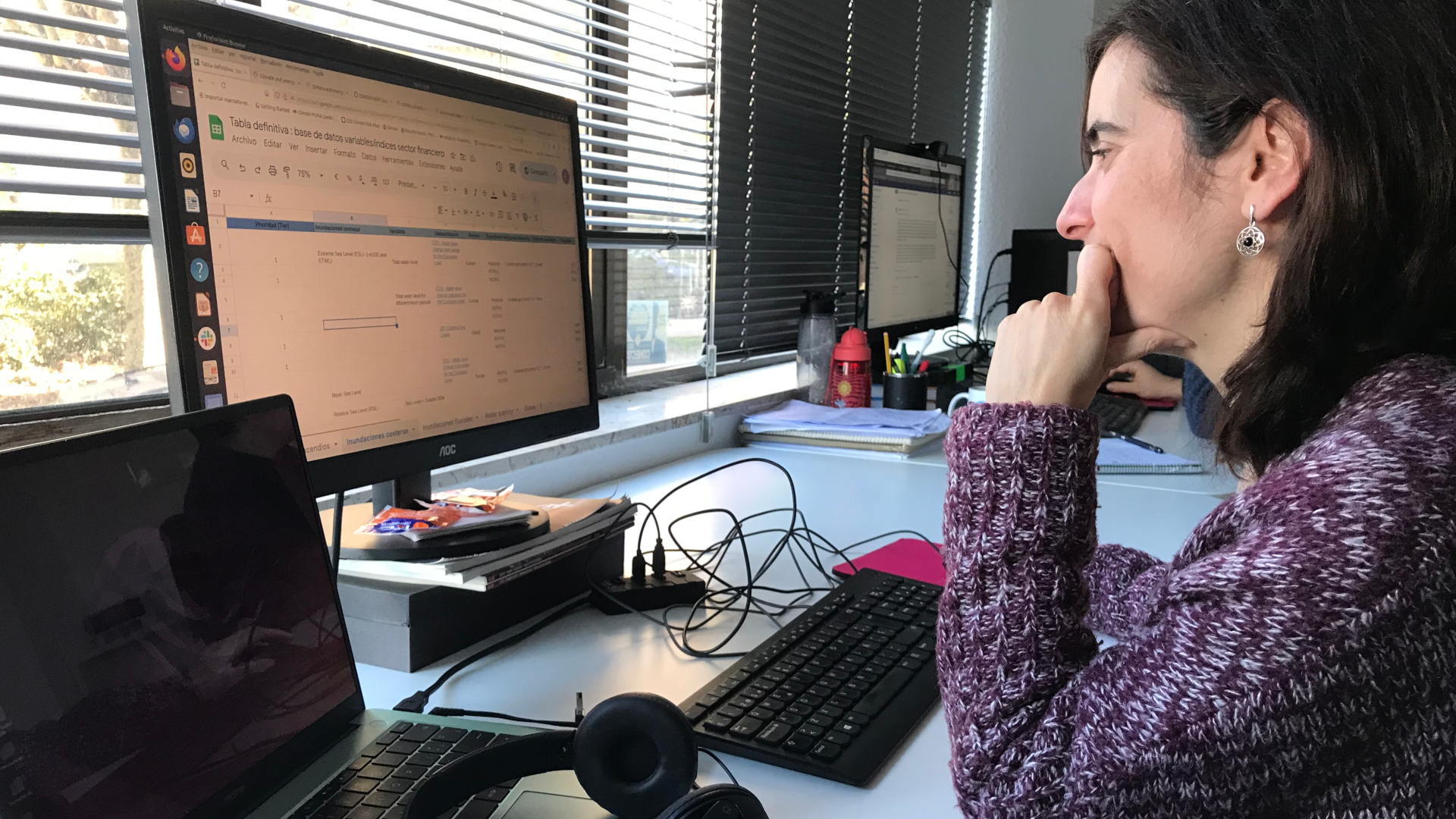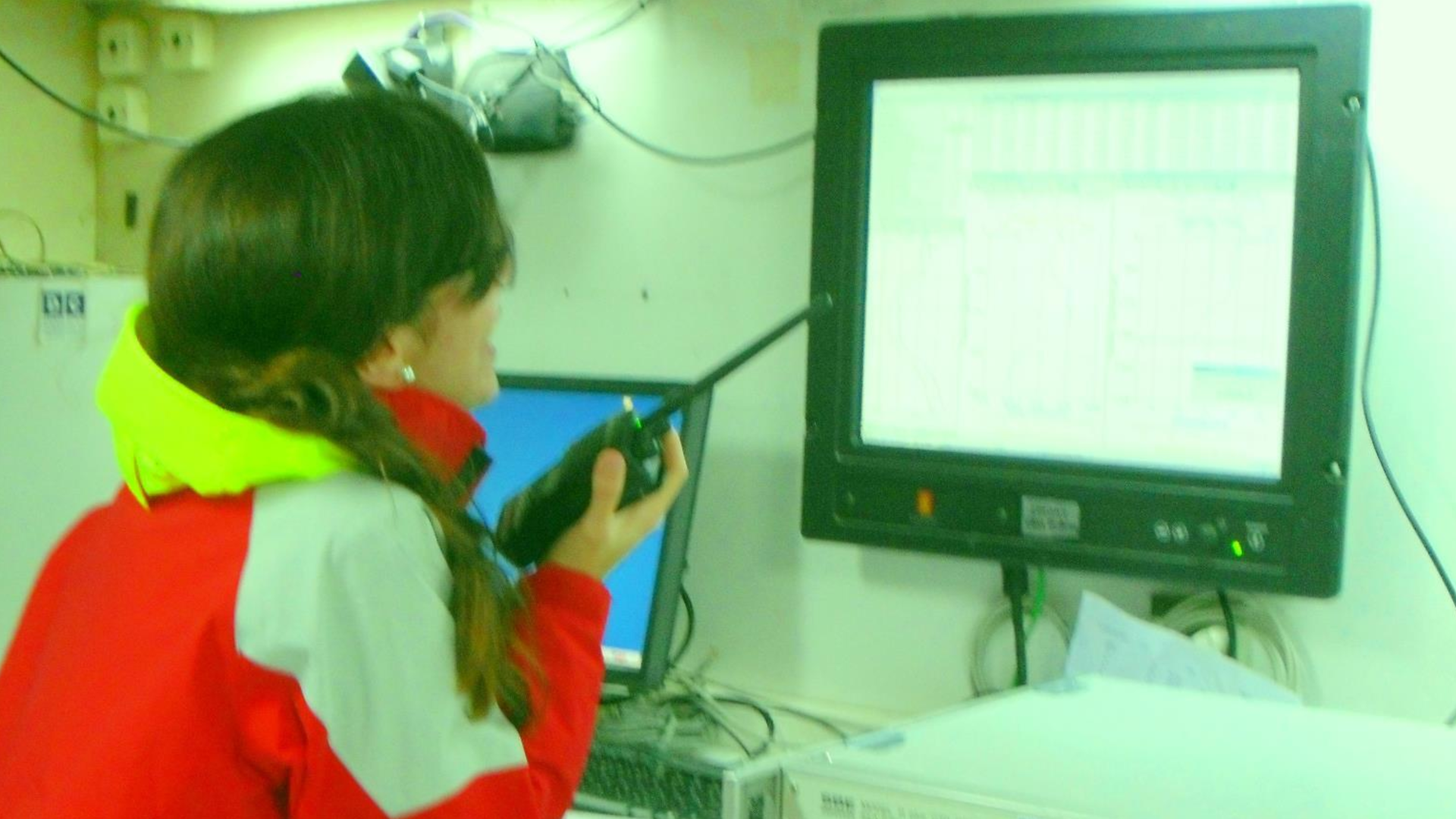Oceanographer Eva Prieto, 39 and hailing from Spain’s Asturias province, ventured into her field with no female inspiration in sight but with plenty of support from her loved ones. Now, Prieto, employed by Predictia since 2022, is involved in a program to help young female students to boost their academic and professional careers.
As we mark the International Day of Women and Girls in Science on 11th February, Prieto has shared her experiences and thoughts on a field still dominated by men, especially as we climb up the professional ranks.
What’s your scientific specialisation?
Physical oceanography. My research consists of the analysis of the hydrographic variability of the deep ocean (up to five thousand metres deep) and its circulation in the northwest of the Iberian Peninsula.
To carry it out, the physical properties of the ocean (temperature, salinity and velocity of ocean currents) are measured using different instruments and in-situ observation platforms (such as oceanographic ships, oceanographic moorings or buoys). These data are then analysed to understand the origin of the observed changes, contributing to the knowledge of the role of the deep ocean in the regulation of the Earth's climate.
What are you currently working on?
I’m working on a R&D project to develop custom climate services that allow the evaluation of the effects of climate change in different fields, such as insurance, water management or agriculture.
Why did you choose to work in this field?
Well, while I was in uni, I liked the environmental side of it, and after I graduated an opportunity arose to pursue my PhD in the Spanish Oceanography Institute. Since I grew up in a coastline region I was always attracted by the sea and I also liked adventures – such as boarding a research ship for work.
Have your family and friends supported you?
Yes, they have. My family has always supported me immensely throughout my professional career and so have my friends, despite some of them not understanding what I was doing.
Who inspired you to pursue this career?
Back then I had no female inspiration as I knew nobody in the field of Oceanography, but I can say my Atmospheric Physics teacher at university helped me learn about this research field.
Have you me previous-generations women working in the same field you do now? What have they shared with you in terms of experiences and challenges?
They had to deal with comments on how to combine maternity and research trips on a ship. Some women’s partners did not understand how demanding it is to do research, especially when you’re doing your PhD and have to travel a lot for field research, congresses, visiting research…

What challenges have you found in the course of your career your male fellows didn’t have to face? Have you ever felt discriminated against during your academic and/or professional career?
No, I have never felt discriminated against for being a woman, and never found any extra challenges different from those of my male colleagues. I think I’ve been lucky and encountered plenty of nice people along the way.
How do you think the access of women to these careers could be made easier?
In the first place, educating in equality, both at school and at home. In the second place, increasing investment on grants (such as the one I was awarded, for research personnel), carrying out career orientation programs with a gender perspective and workshops to stimulate the interest in science among girls. And using inclusive language.
Lastly, I believe the best way for facilitating the access of women to this kind of careers is by letting them decide for themselves.
What would be your advice to young female students?
Be patient, constant and work hard, because you can get wherever you want.
You’ve been participating in the STEM Talent Girl Program since last year, why did you decide to get involved?
Because I want to contribute to increasing the number of inspirational women in science in which younger generations can find an example or help them find new professional paths. STEM Talent Girl is a support network I would have loved to count on when I was younger and had to take important career decisions.

What’s your input there?
My commitment and my time to carry out one session a month to guide a student during her phase of exploration of possibilities for her professional career; My support and availability to resolve any doubts or questions that may arise; and my experience, also providing her with resources and tools that may help her in this search (software I have used, references in the area of climate change, websites…)
And what do you get out of it?
It’s a chance for me to grow as well, not only professionally (acquiring skills to counsel a young girl), but also personally, being part of a network of women; the sessions between advisers are also developed with a "mentor coach". In these sessions each of us expose their doubts about the counselling process, asks for advice and/or shares her experiences to help other mentors with things that have helped her with her mentorée.
Moreover, the learning process is mutual. For example, the day we met, she told me about a book about the universe that I didn't know.
A higher number of female students in STEMM careers should automatically translate into a higher percentage of women working in those fields. Why are there less women than men in companies like this one?
The complexity of the work involved (related to handling data, numbers, matrices, programming, problem solving ....); this is something that is not generally encouraged among women, so they tend to choose less "technical" jobs.
I also believe it is influenced by the perception of the working environment in this type of company (usually with more men than women), and that it’s a job that involves less direct human interaction (as opposed to other sectors where women’s presence is predominant).
What do you think is needed in order to correct this situation?
I think we need to show that behind the technology there are actually people who interact, humans who develop it. And that technology is useful for society.
One way of correcting this situation would be, for example, letting the world know about the people who work in the company and have them explain in simple words what they do on a daily basis.
Also, progress needs to be made on equality in terms of improving work and family life balance.
One last question – what professional goals do you expect to achieve?
Making all the available information coming from climate model projections understandable. And also making it usable for whoever need it to take the right decisions in their sectors, such as agriculture.
